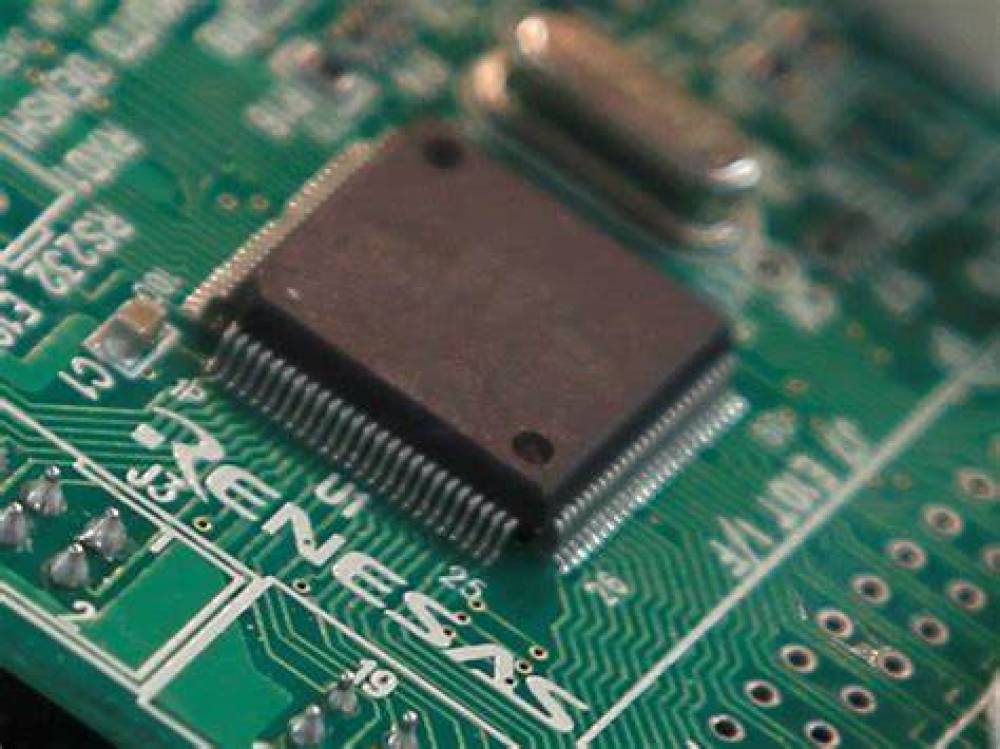
Japan Sees Peril In US Chip Hub To Counter China
Japan Sees Peril in US Chip Hub to Counter China
Japan is concerned that the US will invest billions of dollars in chip manufacturing in order to fend off China has the potential to wipe out the remnants of Japan's once-dominant semiconductor industry.
According to Japan's industry ministry, the country's share of global chip manufacturing has declined from a half to a tenth as it lost customers to cheaper rivals and failed to maintain a competitive edge in cutting-edge production.
As China and the US ramp up support for the manufacturing of chips that power everything from smartphones to missiles, officials fear Japan will be squeezed out entirely.
"We cannot simply continue doing what we have been doing; we must take a step forward," former Prime Minister Shinzo Abe told fellow ruling LDP party members in May during the first party meeting to discuss how the country can become a world leader in the digital economy.
To illustrate Japan's fear of being left behind in a new technology-driven world order, documents distributed earlier this year by the Ministry of Economy, Trade, and Industry included a thick red dotted line over a bar graph indicating the possibility of the chip industry having no market share by 2030.
A major source of concern is the country's still-world-leading firms that supply silicon wafers, chemical films, and manufacturing machinery to chipmakers.
Officials fear that by luring Asian chip foundry behemoths such as Taiwan's Semiconductor Manufacturing Co (TSMC) to its soil, the US will entice these firms to relocate.
"While it is possible for companies to build in Japan and export, the closer a supplier can be, the easier it is to exchange information," said Kazumi Nishikawa, METI's director of the information technology industry.
While the shift may not occur immediately, he believes it is possible in the long run.
Nishikawa is concerned about companies such as Shin-Etsu Chemical and Sumco photoresist supplier JSR Corp, as well as manufacturers of production machinery Screen Holdings and Tokyo Electron.
"We are always prepared to adapt to policy changes in each country," said a spokesperson for JSR, which manufactures light-sensitive photoresist coatings used in Japan, Belgium, and the United States for chip engraving.
When Reuters inquired, none of the companies indicated that they currently intend to relocate production to the United States.
Tech war
To retain them, Japan requires chip foundries that will purchase their wafers, machinery, and chemicals while also ensuring stable semiconductor supplies for the country's automobile and electronic device manufacturers.
TSMC has established a research and development center near Tokyo as part of its overseas expansion strategy in response to concerns about the vulnerability of its Taiwan operations to mainland China's territorial ambitions. Additionally, it is evaluating a proposal to build a fabrication plant in Japan.
However, by far its largest foreign venture is a $12 billion (approximately Rs. 89,140 crores) plant in Arizona, United States.
To stay competitive in the technology race, Prime Minister Yoshihide Suga's government approved a strategy devised by Nishikawa's team at METI in June to ensure Japan has enough chips to compete in emerging technologies such as artificial intelligence, high-speed 5G connectivity, and self-driving vehicles.
One initiative is to transform Japan into a data center hub for Asia. These hubs generate enormous demand for semiconductors, luring chipmakers to build plants nearby.
Spending support
However, the success of its industrial policy will be determined by money.
Until now, the country has committed JPY 500 billion (roughly Rs. 33,900 crores) to bolstering technology supply chains, assisting businesses in coping with chip and component shortages during the coronavirus pandemic, and promoting the shift to 5G.
That is a pittance in comparison to the expenditures proposed by other countries.
"At the current level of support, the semiconductor industry in Japan is struggling, and we want government incentives that are comparable to those found elsewhere," the Japan Electronics and Information Technology Industries Association (JEITA) said in an email.
The US Senate approved a bill authorizing $190 billion (approximately Rs. 14,11,490 crores) in public funds for new technology, including $54 billion (approximately Rs. 4,01,160 crores) for chips, while the European Union intends to spend EUR 135 billion (approximately Rs. 11,75,840 crores) on developing its own digital economy.
Japan would have to earmark large sums of public money that it would otherwise spend on health and welfare to match this spending. METI has not yet stated how much money it believes it requires.
"Given Japan's financial situation, it will be difficult to compete" with the US, the EU, and China, Akira Amari, former economic revitalization minister and leader of the LDP group seeking to "restore Japan's position as the world's number one," told Reuters.

